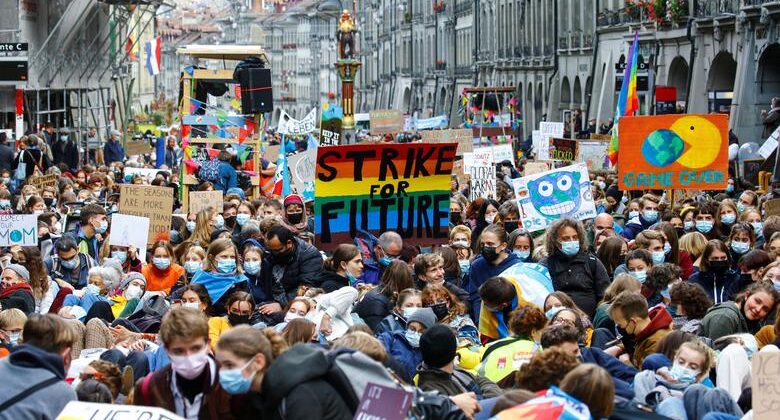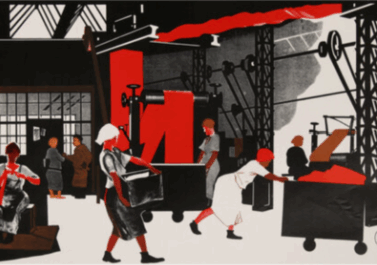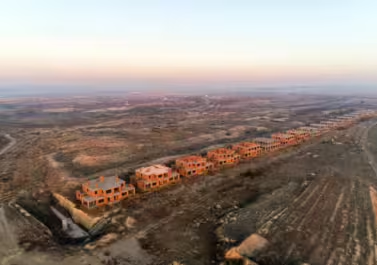
This is the third of our short series of texts about the climate crisis. Here, the comrade goes over similar themes raised in the first article, but goes into a bit more detail about why we think world leaders won’t be able to solve anything, as well as joining the dots more explicitly between climate catastrophe and workers’ struggles, specifically self-organised struggles that challenge our position as the exploited ones, at the same time as rediscovering our own power as the makers (and potential re-makers) of this world. And is the climate crisis separable from the generally intolerable conditions we all face?
Another text will be published soon, questioning where our gaps in scientific and environmental knowledge are, and how filling these gaps could help us in our drive for a classless and more nature-attuned society.
Thousands of people around the world are taking to the streets to demonstrate about climate catastrophe. Millions more are closely watching the COP26 meeting in Glasgow, hoping it can produce agreements that can tackle the problem. But their hopes will be dashed. Even if agreements are made, they will not be kept, just as all previous agreements have failed to produce the required results. At the end of this article, there is a link to the People and Nature website [1], which carries a piece that shows all the claims and boasts made by world leaders at COP26 are half truths and downright lies.
Even if every world leader and every business leader was totally and sincerely committed to taking action, the world will continue to warm up, because none of these people are really in control of the society in which we all live. Scientists and engineers probably have the knowledge and techniques that could begin to overcome what is happening. Indeed, there are thousands of initiatives already taking place around the world where people are trying to put in place new techniques to change their impact on nature. However, the positive results from their work is dwarfed by the ever growing negative impact of the large scale industrial and agricultural businesses.
While scientists and other technologists are so inventive in their own sphere of knowledge, they are clueless about how society operates. Human rationality is not in control. The politicians, the bankers and the business elites are not in control. On the contrary, they are all required to do the bidding of this or that section of capital, of the profits that must continually search the world for ways to reproduce themselves. We live in a totally mad, inhuman world where profits control people. The surplus wealth that we all produced yesterday is not used according to human need or human planning, but obeys its own laws of survival in the ‘market’. We all dance to the tune of capital, from the slum dweller to the Bezoses and Zuckerbergs. Over and over, the new techniques proposed are simply taken up by big business to camouflage their continued plunder – namely, greenwashing. Politicians and the owners of capital all want us to believe that there are ‘technical’ fixes that can solve the problem, while leaving the fundamental nature of our present society untouched.
In the past, local governments and national governments were able to have some say over the use of capital, of profits, to force their owners to pay for things like sewage systems, or education or food quality control, things which no individual producer was willing to pay, but which ultimately created the best environment for capital to develop. But today’s problems are on a totally different scale. There is no global equivalent of the nation state. On the contrary, while the national leaders at COP26 talk of co-operation on climate, they are all locked in a growing trade war. Just look at the global response to covid. To vaccinate the entire world is a trivial problem compared with tackling global warming. Yet the competing nations are incapable of solving this small technical issue. Medical scientists shook their heads in disbelief at the absence of a global approach.
The more people ‘demand’ the world leaders take appropriate action on climate, the more they continue to elevate these puppets of capital into its masters. They continue to disguise the real problems and real tasks. How can humanity and human rationality, based on the needs of everyone on the planet, actually become the controlling force over the production process that is now turning the world into an uninhabitable graveyard? How can the people who actually produce all the world’s wealth through their work, both manual and intellectual, take control of what they produce and the processes by which this is done, and subject it to rational planning? This is a terribly difficult problem to think about, and there are certainly no blueprints for achieving it. But if a discussion about this is not begun, then no amount of demonstrating is going to make the fundamental changes necessary. ctions will simply be tinkering around the margins.
If the producers of everything we need to sustain ourselves are not in control of production, how can a global plan of action ever be implemented? Everything will remain at the mindless whim of the drive for profit and this cannot be overcome by legislation or agreement among the high and mighty. Put simply, it means the producers, those who work, must take total control of the industries and productive processes they work in.
This mad world we live in has another aspect, beyond the irrational and uncontrollability of the production processes. It also strips the producers of their real humanity. Humans became human by the socialisation of obtaining the means of life – food, shelter etc. It was this social and collective activity that allowed humans to become conscious of the world they lived in and to think about the future, to plan. But now this most basic human activity is turned upside down. Everybody enters the workplace as atomised individuals with zero say in what they produce or how it’s produced or what society as a whole needs or doesn’t need. The boss might take decisions at the level of the individual enterprise, but once all these competing enterprises assemble on the world stage, even the bosses’ decisions fade into insignificance.
It is capital, profit, that makes all the final decisions. This leaves the producers stripped of the very involvement in an activity that made humans human. Now they become mindless participants in a process over which they have no control, no input and no connection with. Effectively slaves to capital, stripped of their humanity, individualised, atomised, reduced to mere mindless workhorses, their lives become dominated by capital’s need to sell commodities. People are denied their natural right to control what they make and instead become the obsessive consumers of the growing mountain of stuff that capital has to produce to survive. All the middle class obsession with individual lifestyle choices ignore this reality. Capital forces us to work and also to consume the mountains of shit it produces. Putting your teabag on the compost heap ignores this social reality. The dehumanised individual is bombarded from their day of birth with the mantra that you must consume. Our only real connection with our fellow human beings is through what we buy – until we take a stand against it, until we as producers, as workers begin to organise ourselves against capital. Then we will begin to reconnect in a real way as thinking humans, with a social purpose, with a goal, using our mental abilities for a common good. We can make rational plans and have the prospect of implementing them.
To overcome climate catastrophe, human beings have to take back control of the production process to allow human rationality and human needs to decide what should be produced and how it is produced and distributed.
The people who are demonstrating around the world, demanding the world leaders take action are 100% right in their understanding of the catastrophe facing everyone. But they are totally wrong to think that this is ‘the’ problem, that if this isn’t tackled, all other problems are irrelevant. They point to increasing sea levels, desertification, extreme weather events etc. but for millions of people around the world, there are, as well as these realities, multiple other life and death questions. If you are living in Haiti where the state has collapsed, to get to a shop, which may or may not have anything in it, you have to make your way down streets that are the front line of gang gun warfare. If you are one of the millions of Syrian refugees or people fleeing other wars and economic breakdown, where are you going to find food for your kids today?
On a less dramatic scale, if you are an old person in the UK on the basic state pension, do you eat or stay warm this winter? On a different plane, if you are an Amazon picker in a fulfilment centre, how do you stay sane, with the technology constantly monitoring your every move..?
Capital is degrading the very conditions for human life and human reproduction on the planet. Every aspect of our lives is being made inhuman and increasingly impossible to tolerate; the scouring of the earth for raw materials, the pillaging of natural resources, the impact on climate, wars, the tyranny of the workplace, all these are but aspects of the total destruction of conditions for humans to live. The military coup in Sudan, once again restoring the uncontrolled violence of the Sudanese wealthy elite, is not a seperate or less important issue than climate change. These are all manifestations of the same mad world we live in, and they must all be tackled as a totality. If not, the movement to stop climate change will always be confined to a relatively small group of people who have the material luxury to protest, to people who are not totally consumed by the question of how do I and my family survive another day, how do I not go mad..?
It’s only by being based on the interconnectedness of all these manifestations of the madness of a world controlled by capital that a social movement for change can become powerful enough to put an end to the domination of capital and it’s destructiveness. We need more protests for net zero, we need them to become bigger and more militant, but we need them to stop asking the ‘leaders’ to take the right decisions and begin looking to ourselves for answers. We need to find creative ways in which all protest against the inhuman society we live can impact on each other, feed into each other, inform each other.
Our last text in this series came from our Australian comrades, who recently resurrected the story of the New South Wales Builders Labourers Federation in the 1970’s. They organised themselves so strongly to fight for their own pay and conditions that they were able to stop work on projects that local communities objected to, stopping property developers building on open green spaces etc. The total overhaul of the energy production sphere will not be made by politicians or the owners of Shell or SaudiAramco but when the workers in those industries develop the organisation, the power and the outlook to fight for their own rights and, in doing so, develop the vision and capacity to battle for the rights of society as a whole. We have to fight on all fronts, and militants have to try to find ways to help draw these struggles together, to illuminate one with the other.



